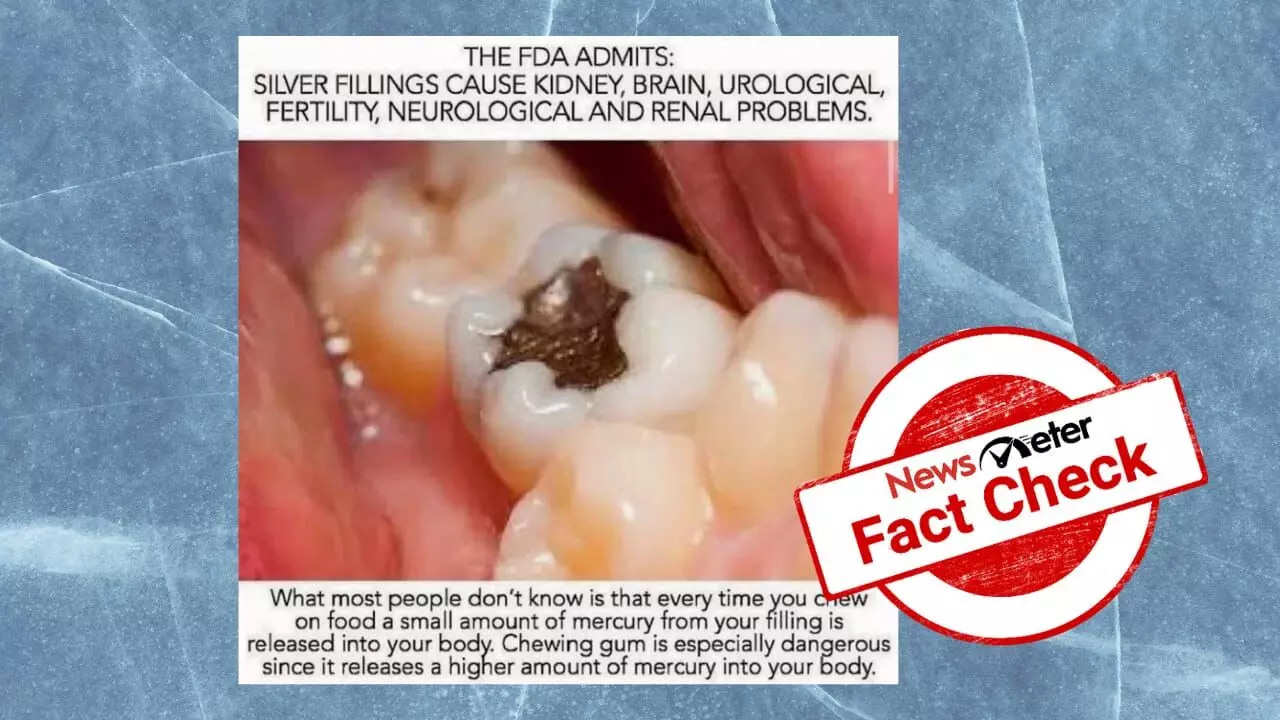Do silver dental fillings cause serious health issues?
A viral post claims that silver dental fillings can be harmful and may be the root cause of many health issues.
By Sunanda Naik
Hyderabad: A viral post claims that silver dental fillings can be harmful and may be the root cause of many health issues.
The post reads, "FDA admits: silver fillings cause kidney, brain, urological, fertility, neurological and renal problems."
It further claims, "What most people don't know is that every time you chew on food a small amount of mercury from your filling is released into your body. Chewing gum is especially dangerous since it releases a high amount of mercury into your body (sic)."
According to the FDA, dental amalgam, sometimes called a "silver-filling" due to its appearance, is a mixture of mercury, silver, copper, tin, and zinc used to fill cavities in teeth. Dental amalgam is approximately half (50%) mercury, by weight.
Let's find out whether silver dental fillings are safe for overall health or not and if the FDA backed the viral claim.
Fact Check
First, let's find out what FDA says about silver dental fillings.
FDA warns that high-risk groups may be more susceptible to the effects of dental amalgam. However, it did not "admit" that silver fillings "cause kidney, brain, urological, fertility, neurological and renal problems."
Additionally, while the majority of evidence suggests exposure to mercury vapor from dental amalgam fillings doesn't lead to harmful health effects for most people, there may be some effects on people with certain health issues such as those who are hypersensitive to mercury.
This means that silver dental fillings are not generally harmful.
We found a study on The Journal by American Dental Association that says, "Although some people express concern about mercury vapor released from dental amalgam when they chew, the amount released is well below the limits set by the US Environmental Protection Agency and the World Health Organization. As with any material used in the body, some people may be at risk of experiencing an allergic reaction. Less than 1% of the people who get amalgam fillings, though, might have an allergic reaction."
Another article suggests that no evidence exists to show that amalgam fillings increase the risk of health problems. So, unless you have trouble with your fillings or experience an allergic reaction to the material in amalgam fillings, there is no need to have them replaced.
Thomas Salinas, D.D.S., dental specialties, told Mayo Clinic that there is no need for concern about the safety of amalgam fillings. There is no evidence that shows any correlation between having amalgam fillings and increased risks for illness or developmental problems. Amalgam is an excellent, long-lasting material for fillings. If you have concerns about your fillings, or if you experience problems with them, talk to your dentist about the need for replacement.
Lastly, US Poison Control also said there is no clinical evidence of mercury poisoning in people who have amalgam fillings in their mouths.
It is evident that silver dental fillings are safe and the US FDA did not say silver fillings are harmful for all. Hence, the post is misleading.